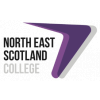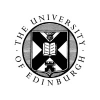Snabbfakta
-
- London
Ansök senast: 2024-11-15
Research Associate in Simulation and Exploration of Next-generation GenAI Hardware
Applications are invited for a postdoctoral researcher to work on the simulation and exploration of next-generation GenAI hardware designs.
The UK's Advanced Research Invention Agency (ARIA) is supporting an ambitious programme of work that aims to reduce the hardware costs associated with training AI models by more than 1000x. The objective of our project, funded within this programme, is to develop a scalable and modular simulation framework. This will require multiple levels of simulation focused at different system layers and levels of fidelity. A key goal is to allow novel hardware ideas to be easily incorporated and evaluated, . to aid the development of next-generation hardware for GenAI.
The objective of our project, funded within this programme, is to develop a scalable and modular simulation framework. This will require multiple levels of simulation focused at different system layers and levels of fidelity. A key goal is to allow novel hardware ideas to be easily incorporated and evaluated, . to aid the development of next-generation hardware for GenAI.
The work at Imperial will focus on the behaviour simulation of the accelerator hardware. To understand how significant change or alternations in the underlying hardware system might translate to the performance metrics impact (such as accuracy or perplexity) of the machine learning models.
The team at Imperial will consist of three investigators: Dr Aaron Zhao (PI and team lead), Prof. George Constantinides and Prof. Wayne Luk.
The team also includes Dr Mai Luo and Prof. Michael O'Boyle from the University of Edinburgh; and Prof. Robert Mullins, Prof. Timothy Jones and Dr Rika Antonova from Cambridge. Overall, there will be great opportunities for collaboration between more than a dozen PhD students and post-doctoral researchers working on this project at Imperial, University of Cambridge and University of Edinburgh.













